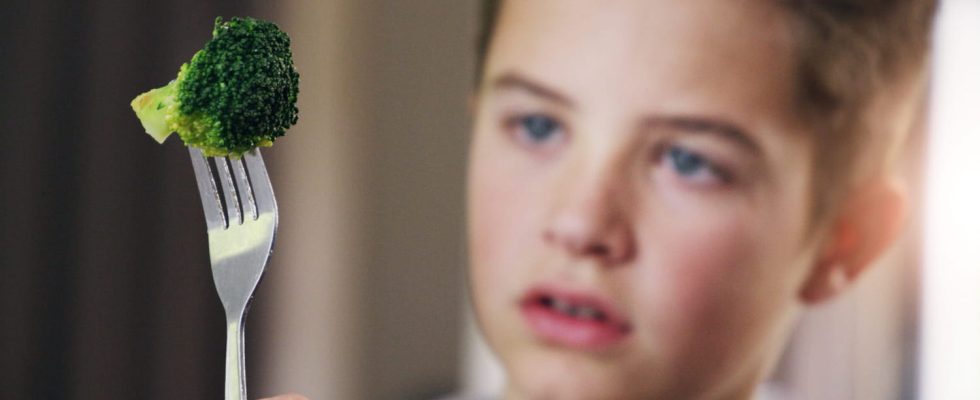“You can have dessert if you eat your broccoli”… Certain sentences spoken and repeated when eating can lead children to poor eating habits as they grow up, explains Jennifer Anderson, dietician.
There children’s relationship with food is not always easy when they are small. And when parents put their two cents in, it often doesn’t help matters. Seeing their child leave certain foods on their plate, especially vegetables, parents tend to use tricks to get him to finish his meal: “if you finish your vegetables, you will have an ice cream for dessert”. But this type of sentence is actually toxic for the child, which risks, as it grows, develop an unhealthy relationship with foodexplains the American dietician Jennifer Anderson to the media CNBC Make It. During her research, the specialist noted 4 toxic phrases to avoid saying to a child at mealtime:
1- “You can have dessert after eating your broccoli.”
According to the expert, when a parent offers sweets to a child to convince him to eat a food, the child simply hears: “Broccoli is bad. It’s so bad I have to bribe you to eat it”, she details. By contrasting these two types of food, the child is unwittingly shown that one is good and the other is bad, and therefore instinctively, he will not go for the healthier option.
2- “If you shut up, you’ll get a cookie.”
This sentence refers to the child that if he does not argue about what to eat, he will be rewarded with a treat. This puts the sweets as if on a pedestal. For the dietician, the risk is that the child will crave sweets more than other foods. Or that he associates treats with a certain feeling of well-being and that he always resorts to them when he wants to feel better.
It is therefore preferable to replace this type of sentence by: “We can play your favorite game tonight if you don’t discuss your meal.”
3- “Take one last bite before saying ‘no’.”
With this sentence, the child will understand that he should not refuse the food offered to him, even if he is not hungry or if he feels bad. For Jennifer Anderson, “by forcing your child to eat, you risk teaching him to ignore the feeling of hunger and satiety. Growing up, he might find it hard to say ‘no’ to things that make him uncomfortable.” she indicates.
It is better to teach the child to politely refuse food by saying, for example: “When you really don’t want to eat something, you can say ‘no thank you'”.
4- “To please me, take three more bites.”
This sentence will send a completely different message to the child. He will understand that he must adopt good eating habits to make his parent happy. For the specialist, it is more interesting toteaching children the benefits of food so that they understand what a healthy diet brings to their body. So you can say for example: “Carrots contain a lot of vitamin A, which is good for the eyes in general, it will help you see better”, suggests the dietitian.
